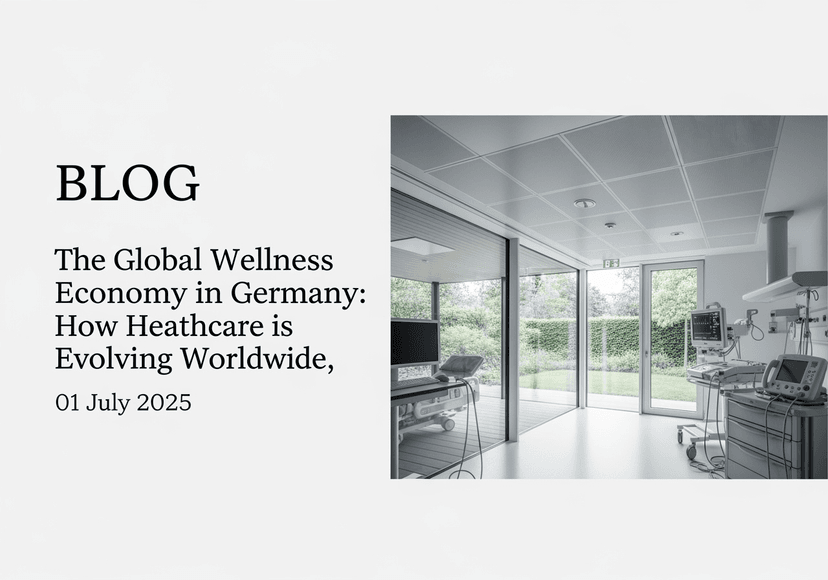
Living a Healthy Life After Transplant
08 Oct, 2024
 Healthtrip
HealthtripReceiving a transplant can be a life-changing event, and it's a testament to modern medicine that so many people are able to survive and thrive after this complex surgery. However, the journey doesn't end with the transplant itself - it's just the beginning of a new chapter in your life. As you navigate this new reality, it's essential to focus on living a healthy life to ensure the transplant is a success in the long run. In this article, we'll explore the key aspects of maintaining a healthy lifestyle after a transplant, from managing medications to nurturing your mental wellbeing.
Medication Management: The Cornerstone of a Healthy Life
Taking your medications as prescribed is crucial to preventing rejection and ensuring the transplanted organ functions properly. It's essential to develop a routine and stick to it, so your medications become a habit. Set reminders on your phone, use a pillbox, or enlist the help of a family member or friend to ensure you never miss a dose. It's also vital to attend regular check-ups with your healthcare team to monitor your progress and make any necessary adjustments to your medication regimen.
Most popular procedures in India
The Importance of Adherence
Adhering to your medication schedule is critical, as it directly impacts the success of your transplant. Missing even a single dose can increase the risk of rejection, which can lead to serious complications. Don't be tempted to skip a dose or stop taking your medications altogether, even if you're feeling well. Remember, your medications are a vital part of your treatment plan, and skipping them can have serious consequences.
Nutrition and Hydration: Fueling Your Body
A healthy diet is essential for maintaining overall health and wellbeing after a transplant. Focus on consuming a balanced diet rich in fruits, vegetables, whole grains, and lean proteins. Avoid processed and high-sugar foods, which can exacerbate health problems. Staying hydrated is also crucial, so drink plenty of water throughout the day. Limit your intake of caffeine and alcohol, which can interact with your medications and dehydrate your body.
Wellness Treatments
Give yourself the time to relax
Lowest Prices Guaranteed!

Lowest Prices Guaranteed!
Managing Food Safety
After a transplant, your immune system is suppressed, making you more susceptible to foodborne illnesses. Practice good food safety habits, such as washing your hands frequently, cooking food to the recommended internal temperature, and avoiding raw or undercooked meat, eggs, and fish. Be mindful of expiration dates and avoid consuming spoiled or contaminated food.
Exercise and Physical Activity: Getting Moving
Regular exercise is vital for overall health and wellbeing, and it's especially important after a transplant. Gentle exercise, such as yoga or walking, can help improve cardiovascular health, boost your mood, and increase energy levels. Gradually increase your physical activity over time, but be sure to consult with your healthcare team before starting any new exercise program. They can provide guidance on safe exercises and intensity levels.
Overcoming Fatigue
Fatigue is a common complaint after a transplant, but it's not something you have to accept. Engage in activities that bring you joy, take regular breaks, and prioritize rest when needed. Don't push yourself too hard, as this can exacerbate fatigue. Instead, focus on making gradual progress and celebrate small victories along the way.
Mental Health and Wellbeing: The Emotional Aspect
Receiving a transplant can be an emotional rollercoaster, and it's essential to prioritize your mental health and wellbeing. Don't be afraid to express your feelings to your loved ones, friends, or a mental health professional. Joining a support group can also provide a sense of community and connection with others who have undergone a similar experience.
Managing Anxiety and Depression
Anxiety and depression are common after a transplant, but they don't have to define your experience. Practice stress-reducing techniques, such as meditation or deep breathing, and engage in activities that bring you joy. Don't hesitate to seek professional help if you're struggling with your mental health - it's a sign of strength, not weakness.
Sleep and Rest: Recharging Your Batteries
Sleep is essential for overall health and wellbeing, and it's especially important after a transplant. Aim for 7-8 hours of sleep each night and establish a relaxing bedtime routine to improve sleep quality. During the day, take regular breaks to rest and recharge - your body will thank you.
Establishing a Bedtime Routine
Develop a calming pre-sleep routine to signal to your body that it's time to wind down. This could include activities like reading a book, taking a warm bath, or practicing gentle stretches. Avoid screens and stimulating activities before bedtime, as they can interfere with sleep quality.
Living a healthy life after a transplant requires commitment, patience, and dedication. By managing your medications, focusing on nutrition and hydration, engaging in regular exercise, prioritizing mental health, and getting adequate sleep, you can thrive in your new life. Remember, you're not alone - your healthcare team is always there to support and guide you every step of the way.
Related Blogs

The Future of Wellness in Malaysia: Breakthrough Trends You Need to Know, 01 July 2025
Get the latest news and trends in health and wellness,

Holistic Health Insights in India: Balancing Mind, Body, and Soul, 01 July 2025
Get the latest news and trends in health and wellness,

New Trends in Wellness & Healthcare in United Kingdom: How Healthtrip Partners Can Stay Ahead, 01 July 2025
Get the latest news and trends in health and wellness,

The Future of Wellness in Singapore: Breakthrough Trends You Need to Know, 01 July 2025
Get the latest news and trends in health and wellness,

The Global Wellness Economy in Germany: How Healthcare is Evolving Worldwide, 01 July 2025
Get the latest news and trends in health and wellness,

Healthtrip Global Care Update: Your Daily Dose of Medical & Wellness Insights, 01 July 2025
Get the latest news and trends in health and wellness,










